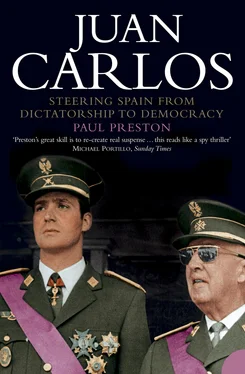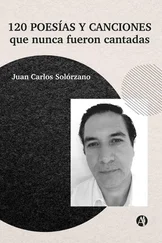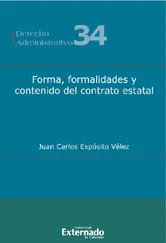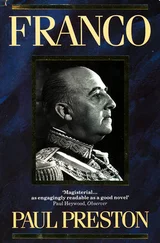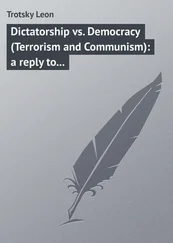Between the two poles of the proposal of Operación Ruiseñada for a negotiated transition to Don Juan and Arrese’s plans for a resurgent Falangism, there emerged a middle option favoured by Luis Carrero Blanco, who had recently been promoted to Admiral. To the detriment of Don Juan and the benefit of Juan Carlos, this would ultimately be adopted by Franco. It consisted of an attempt to build on the Ley de Sucesión by elaborating the legislative framework for an absolute monarchy, in order to guarantee the continuity of Francoism after the death of the Caudillo. The legal expert commissioned to produce a blueprint was Laureano López Rodó. Carrero Blanco had been immensely impressed by López Rodó’s critique of Arrese’s text. Recognizing his talent and capacity for hard work, at the end of 1956 Carrero Blanco asked him to set up a technical secretariat in the Presidencia del Gobierno (the office of the President of the Council of Ministers) to prepare plans for a major administrative reform. 44 As Secretary-General of the Presidencia , the doggedly loyal Carrero Blanco was Franco’s political chief of staff. As Franco began to relax his grip on day-to-day politics, Carrero Blanco was gradually metamorphosing into a Prime Minister. López Rodó, in his turn, would swiftly become Carrero’s own chief of staff.
The Opus Dei was thus well placed for the future but was still hedging its bets. Just as Rafael Calvo Serer was banking on Don Juan being Franco’s eventual successor, López Rodó was working on a long-term plan for a gradual evolution towards the monarchy in the person of Prince Juan Carlos. His plans would not come to fruition for many years. For the moment, Bautista Sánchez and other partisans of Don Juan were trying to implement the Operación Ruiseñada in order to marginalize Franco and place Don Juan upon the throne. Bautista Sánchez was under constant surveillance by Franco’s intelligence services, and therefore did not attend, in December 1956, a meeting of military and civilian monarchists involved in the scheme who gathered under the cover of a hunting party at one of the estates of Ruiseñada, El Alamin near Toledo. 45 Nevertheless, Bautista Sánchez continued to be seen by the regime as dangerous, particularly when, in mid-January 1957, another transport users’ strike broke out in Barcelona. Although not as violent as that of 1951, the coincidence of anti-regime demonstrations at the university alarmed the authorities. 46 Bautista Sánchez was highly critical of the Civil Governor of the province, General Felipe Acedo Colunga, for the brutal force with which demonstrations of workers and students were crushed. Franco perceived this as tantamount to giving moral support to the strikers. 47
Madrid was buzzing with rumours and Franco quickly jumped to the conclusion that Bautista Sánchez was fostering the strike to facilitate a coup in favour of the monarchy. After his summer-time conversation with Barroso about Operación Ruiseñada , Franco was deeply suspicious of the monarchists. In fact, there was little or no chance of military action despite the wishful thinking of Ruiseñada, Sainz Rodríguez and others. However, the conversations between the royalist plotters and Don Juan’s house in Estoril were being tapped by the Caudillo’s security services, and Franco reacted to the transcripts of these optimistic fantasies as if they were fact. 48 He sent two regiments of the Foreign Legion to Catalonia, under his own direct orders, to join in military manoeuvres being supervised by Bautista Sánchez. Franco also sent Bautista Sanchez’s friend, the Captain-General of Valencia, General Joaquín Ríos Capapé, to talk him out of his support for Operación Ruiseñada . The Minister for the Army, General Agustín Muñoz Grandes, also appeared in the course of the manoeuvres and confronted Bautista Sánchez with the news that he was being relieved of the command of Captain-General of Barcelona. On the following day, 29 January 1957, Bautista Sánchez was found dead in his room in a hotel in Puigcerdá. 49 Wild rumours proliferated that he had been murdered – possibly even shot by another general, perhaps given a fatal injection by Falangist agents. 50 A long-term sufferer of angina pectoris, it is more likely that Bautista Sánchez had died of a heart attack after the shock of his painful interview with Muñoz Grandes. 51
Meanwhile, Juan Carlos was undergoing the process of getting over the tragedy of Alfonsito’s death. He seems to have adopted a forced gaiety and, understandably for a young man of nearly 19, spent as much time as his studies permitted in the company of girls. There were many of them and he had a readiness to think himself in love. He oscillated between being infatuated with, and just being very fond of, his childhood friend, Princess María Gabriella di Savoia. Neither Franco nor Don Juan approved of the relationship, among other reasons because she was the daughter of the exiled King Umberto of Italy, who had little prospect of recovering his throne. 52 However, in December 1956, during the Christmas holidays at Estoril, Juan Carlos met Contessa Olghina Nicolis di Robilant, an extremely beautiful Italian aristocrat and minor film actress, who was friendly with María Gabriella and her sister Pia. She was four years older than him. His infatuation was instant and, before the night was over, he had told her that he loved her. They began a sporadic affair that lasted until 1960. She found him passionate and impulsive, not at all what she expected after what she had heard about the tragedy of Alfonsito. ‘Juanito,’ she later recalled, ‘did not show any signs of the slightest complex. He wore a black tie and a little black ribbon as a sign of mourning. That was all. I asked myself if it was a lack of feeling or if his behaviour was forced. Whatever the case, it seemed a little soon to be going to parties, dancing and necking.’ After responding to his advances, she asked about his relationship with María Gabriella. He allegedly replied, ‘I don’t have much freedom of choice, try to understand. And she’s the one I prefer out of the so-called eligible ones.’ 53
In 1988, the 47 love letters that Juan Carlos wrote to Olghina between 1956 and 1959 were published in the Italian magazine Oggi and later in the Spanish magazine Interviú . One of the letters was extraordinarily revealing both of the situation in which the 19-year-old Prince found himself and of his relative maturity and sense of dynastic responsibility. He wrote: ‘At the moment, I love you more than anyone else, but I understand, because it is my obligation, that I cannot marry you and so I have to think of someone else. The only girl that I have seen so far that attracts me physically and morally, indeed in every way, is Gabriella, and she does, a lot. I hope, or rather I think it would be wise, for the moment, not to say anything about getting serious or even having an understanding with her. But I want her to know something about how I see things, but nothing more because we are both very young.’ He repeated the message in another letter to Olghina in which he pointed out that his duties to his father and to Spain would prevent him ever marrying her. 54
In her memoirs and in interviews following the publication of the letters, Olghina claimed that Don Juan had done everything possible to put obstacles in the way of the relationship. As she herself realized, Don Juan’s opposition put her in the same position as Verdi’s La Traviata , the courtesan abandoned because of the needs of her suitor’s family. In view of the innumerable lovers whose names tumble through the pages of her memoirs, Don Juan’s concern was entirely comprehensible. At one point, he stopped her being invited to the coming-out celebration in Portofino for Juan Carlos’s cousin, María Teresa Marone-Cinzano. According to Olghina, this provoked a ferocious row between Don Juan and his son, who threatened not to go to the ball. Juan Carlos eventually agreed to attend, but when he left early to go to see Olghina, there was a scuffle with his father. 55
Читать дальше
